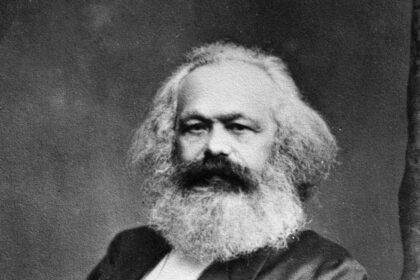The death of Jorge Mario Bergoglio—known to the credulous as Pope Francis—has prompted a grotesque swell of sanctified platitudes from the Vatican’s apologists and the world’s sentimentalists. In a spectacle as choreographed as it is intellectually insulting, the secular and the devout alike have queued to pour libations upon the legacy of a man who, beneath his theatrical austerity and simulated humility, remained an agent of a decrepit, deceitful empire. Let us not indulge in euphemism: Francis died not as a reformer, but as a relic—a figurehead for an institution that has mastered the art of penance without contrition and change without reform.
Touted absurdly as a “Pope of the People,” Francis wielded the power of moral theater with the cynical fluency of a career Jesuit. The media swooned at his refusal to wear red Prada slippers and at his choice of a battered Renault over the papal limousine. But this carefully constructed tableau of humility was never anything more than stagecraft—a saccharine pantomime designed to distract from the unrepentant obscurantism at the heart of his rule.
Consider the vast edifice of abuse that has haunted the Catholic Church for generations. What did Francis do? He convened synods. He issued press releases. When confronted in 2018 with accusations of complicity regarding Chilean bishop Juan Barros, he defended the bishop and called the victims’ allegations “calumny.” Only after public outrage forced his hand did the Vatican perform its usual choreography of performative repentance. Later that year, a Pennsylvania grand jury report exposed that over 300 priests had abused more than 1,000 children over decades, while Church leadership systematically covered up the crimes. Francis responded not with sweeping accountability but with vague laments about “clericalism,” as if systemic rape were the result of careerism rather than moral rot.
In 2019, he abolished the “pontifical secret” in abuse investigations. Yet there remained no obligation to report abuse to secular authorities. Bishops continued to be allowed the discretion of silence, and the machinery of concealment endured beneath a new coat of varnish. To praise these meager reforms is to applaud a butcher for changing his apron.
On the question of women, Francis remained a custodian of the Church’s most indefensible dogmas. When asked in 2016 whether women would ever be ordained as priests, he replied, “That door is closed.” Not for lack of theological justification, but because his predecessors had said so. Even the question of female deacons—a harmless concession in historical terms—was consigned to a commission that produced no change, only further delay. The Roman Church under Francis was still a patriarchal enclave where women could arrange the altar flowers but not speak from the pulpit.
One of the most grotesque chapters of his papacy—one met with almost criminal silence in Western media—was his role in perpetuating the Church’s deadly stance on contraception in sub-Saharan Africa. In 2015, at the height of Francis’s global acclaim, over 25 million people in sub-Saharan Africa were living with HIV. The Vatican’s continued prohibition on contraceptives, reaffirmed under Francis, served to deepen this public health crisis. When asked aboard a papal flight in 2015 whether the Church might relax its position on contraception as a matter of urgent medical necessity, Francis responded with rhetorical fog:“The question seems too small,” he said. For the dead and dying, it was not.
The Church’s crusade against prophylactics has never been merely theological—it has been fatal. Missionaries, bishops, and Vatican-aligned NGOs across Africa continued to promote such doctrines while condemning those who sought protection as “sinful.” Francis could have changed this with a single encyclical. He did not. His silence was not neutrality; it was complicity. He presided over a doctrine that knowingly permitted preventable deaths in the name of moral purity.
Even his much-heralded encyclical Laudato Si’, which concerned itself with environmental stewardship, failed to acknowledge the role of overpopulation or lack of access to reproductive healthcare in ecological degradation. It is a document heavy with platitude and light on prescription—a sermon to the choir, not a call to action. He preached moderation while commanding millions to breed in obedience to an ancient decree.
And what of the victims of his softly spoken absolutism? Women forced into childbirth against their will, their doctors threatened with excommunication. Under no circumstance does the Catholic Church countenance abortion. Survivors of clerical rape were handed settlements in exchange for silence. A generation of African youth denied access to life-saving medicine in the name of a Vatican fantasy. All the while, Francis smiled gently, wore plain robes, and mumbled of mercy.
His defenders point to gestures: a foot washed here, a refugee embraced there. But gestures are not justice. His reign was not a reformation—it was a campaign of delay. A stalling mechanism designed to soften the image of a church that remains, at its root, authoritarian, patriarchal, and cruel.
As proud scions of a Muslim country, we in Pakistan must also ask ourselves, what of his relationship with Islam? Though he made theatrical visits to Islamic countries and made a spectacle of kissing the Qur’an (both of which the author feels no hesitation in lauding), the Pope, like all before and after him, holds himself as guardian of the only true faith. How weas Muslims may reconcile the sorrow pouring forth from some of us with the character of the man himself, one fails to see.
Now, with his death, we are told to mourn. But one does not mourn the mask when the executioner still stands behind it.
Let us tell the truth:
Francis’s legacy is not one of mercy, but of mirage. He leaves behind an empire untouched, still whispering pieties while grinding the weak into powder, with an absolutism to back it all up. He should not be remembered as a revolutionary. He should be remembered as the last great illusion of an institution that has long outlived its dignity.















